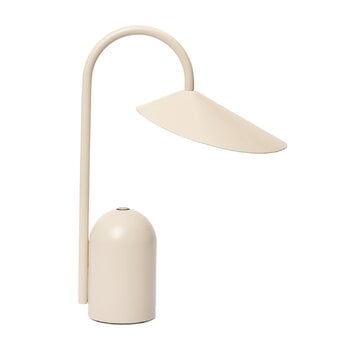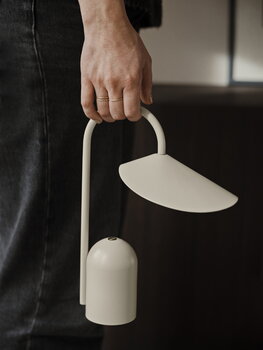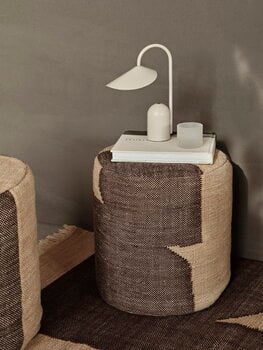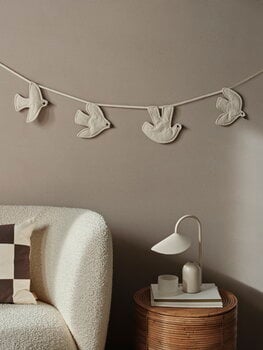ferm LIVING's portable Arum table lamp is easy to move from the windowsill to the coffee table or from the desk to the dining table, wherever light is needed. This wireless lamp, charged via USB-C cable, features a three-level dimmer and offers 8–24 hours of battery life on a single charge, depending on the brightness setting.
Named after Arum plants, the luminaire features a delicate leaf-like shade that can be adjusted to provide either task or ambient light. Matte off-white on the inside, the shade distributes the light softly and evenly, creating a welcoming atmosphere in the bedroom, living room or office.






























